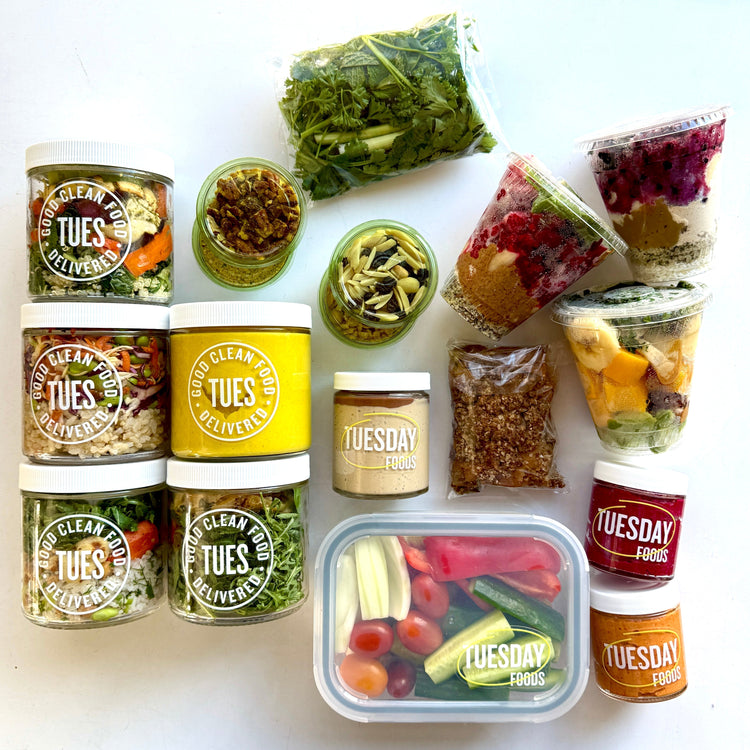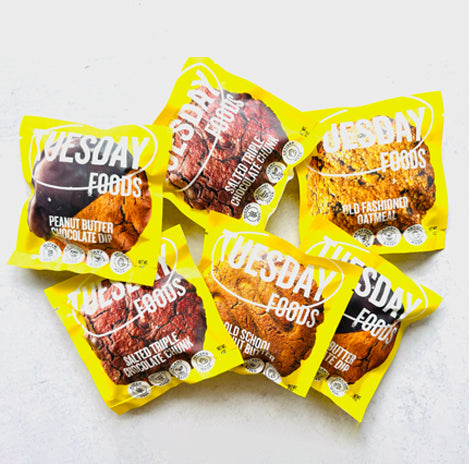Good Food, Good Mood: The Science Behind What You Eat and How You Feel

Eat for a Better Mood
Mood isn't just shaped by what’s going on in your mind — it’s deeply tied to what’s happening in your body. If you’ve ever felt foggy, irritable, anxious, or low and couldn’t pinpoint why, your food might hold the answer.
Functional medicine takes a root-cause approach to mood. Instead of reaching first for quick fixes, it looks at how nutrients, inflammation, blood sugar, and gut health contribute to emotional resilience — or imbalance.
Let’s explore the top foods that support mood from the inside out, and how you can make them part of your daily routine.
1. Omega-3s: Fatty Acids for Better Mood
Found in: Wild salmon, sardines, flaxseeds, chia seeds, walnuts
Omega-3 fatty acids (especially EPA and DHA) are essential for healthy brain function. They make up a large portion of brain cell membranes and have powerful anti-inflammatory effects — both critical for emotional well-being.
Low intake of omega-3s has been associated with depression, anxiety, and cognitive decline. A diet rich in omega-3s supports better focus, calm, and mood stability.
Try this: Sprinkle ground flax on your oatmeal or smoothies, and aim for at least two servings of wild-caught fatty fish each week.
2. Magnesium: The Anti-Stress Mineral
Found in: Pumpkin seeds, spinach, avocado, dark chocolate, almonds
Magnesium helps regulate the nervous system, supports muscle relaxation, and contributes to the production of serotonin — one of the brain’s “feel-good” chemicals.
Modern diets (and depleted soils) often leave people chronically low in magnesium. Symptoms can include irritability, anxiety, sleep disturbances, and even sugar cravings.
Try this: Add magnesium-rich greens to a smoothie or snack on pumpkin seeds in the afternoon. Recipe below!
3. B Vitamins: Energy and Neurotransmitter Builders
Found in: Eggs, leafy greens, lentils, pasture-raised meats, nutritional yeast
B vitamins play a crucial role in converting food into energy and producing neurotransmitters like dopamine and serotonin. Deficiencies — especially in B6, folate (B9), and B12 — are common in those with low mood, fatigue, or brain fog.
Try this: A breakfast with leafy greens, pasture-raised eggs, and avocado offers a powerful B-vitamin boost to start your day with clarity and calm.
4. Polyphenols & Antioxidants: Brain-Protective Power
Found in: Berries, turmeric, green tea, colorful vegetables, dark chocolate
Antioxidants reduce oxidative stress, which is a major contributor to inflammation in the brain — a factor increasingly linked to depression and cognitive decline.
Polyphenols like curcumin (from turmeric) and flavonoids (in berries and green tea) offer both mood-boosting and neuroprotective effects.
Try this: Swap your afternoon coffee for green tea, or blend a handful of berries into your morning smoothie.
5. Fermented Foods: The Gut-Mood Connection
Found in: Kimchi, sauerkraut, miso, kefir, yogurt (unsweetened)
Your gut microbiome directly communicates with your brain via the gut-brain axis. It helps produce neurotransmitters (like serotonin), modulates inflammation, and even influences stress response.
Fermented foods introduce beneficial bacteria that help support a healthy, balanced microbiome — essential for mental health.
Try this: Add a spoonful of sauerkraut or kimchi to your meals, cottage cheese or yogurt for a snack, or enjoy a miso broth before dinner.
Bonus Tip: Ditch the Mood Crashers
Highly processed foods, refined carbohydrates, and excessive sugar can cause blood sugar instability, gut inflammation, and nutrient depletion — all of which can contribute to mood swings, fatigue, and anxiety.
Instead, focus on whole, nutrient-dense foods that nourish your brain and balance your body.
Mood-Boosting Smoothie Recipe: Calm + Clarity Green Smoothie
This magnesium- and antioxidant-rich smoothie supports calm energy, steady mood, and brain clarity — perfect for mornings or a mid-afternoon reset.
Ingredients:
-
1 cup unsweetened almond or cashew milk
-
1 frozen banana (for creaminess and natural sweetness)
-
1 handful spinach or baby kale
-
1 tablespoon almond butter or raw pumpkin seeds
-
1 tablespoon raw cacao powder
-
1 tablespoon ground flax or chia seeds
-
1/2 avocado (healthy fats + fiber)
-
Dash of cinnamon or pinch of sea salt (optional)
-
Ice cubes as needed
Optional boosters:
-
1/2 scoop clean protein powder (for blood sugar balance)
-
1 teaspoon ashwagandha or maca (adaptogens for mood)
-
1/4 teaspoon turmeric + black pepper (anti-inflammatory support)
Instructions:
-
Add all ingredients to a high-speed blender.
-
Blend until smooth and creamy.
-
Pour into your favorite glass or to-go cup, and enjoy slowly.
Final Thoughts: Functional Medicine’s Take on Mood
Mood is more than a mental state — it’s a reflection of your body’s systems. When inflammation, nutrient imbalances, or gut dysfunction are present, your emotional well-being can suffer.
The good news? You can begin to support your mood every single day — starting with what’s on your plate.
By incorporating mood-supportive foods, balancing blood sugar, and nourishing your gut and brain, you can build a more resilient, vibrant emotional foundation.
Start feeling better today — explore our ready-to-eat functional meals at Tuesday Foods and order today!


